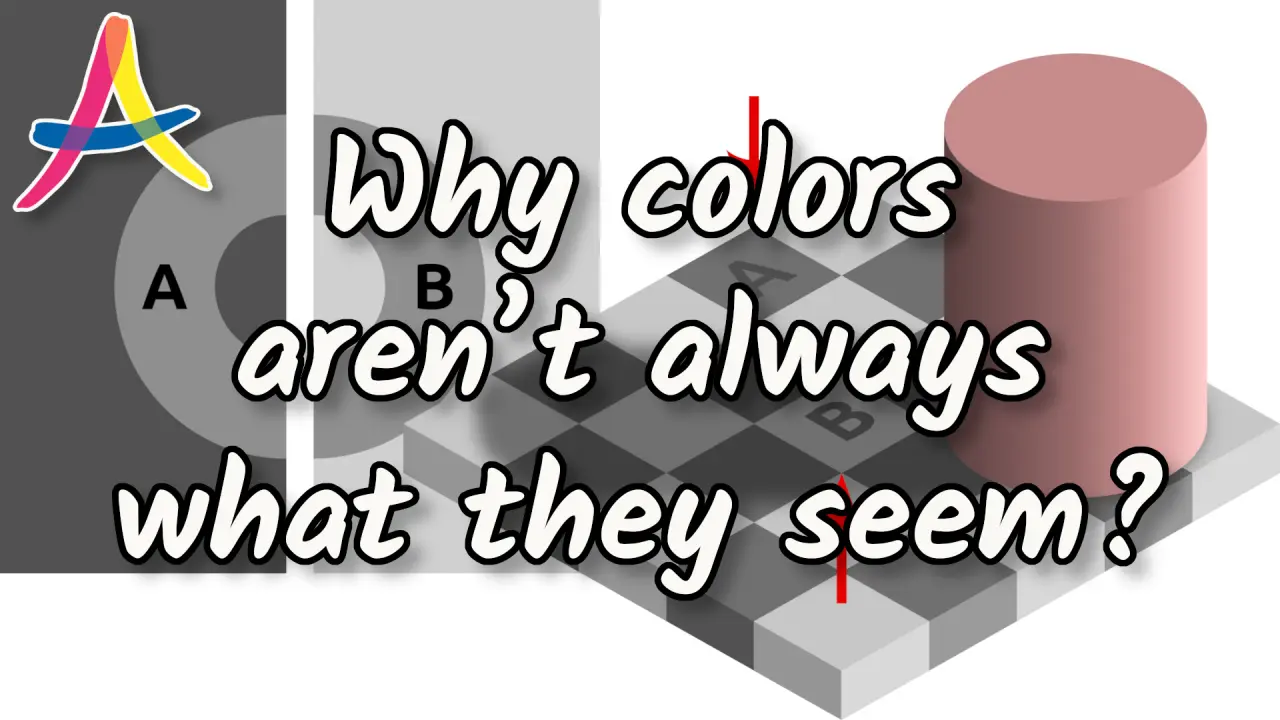Mixing colors like a pro
How good are you at identifying colors? Do you think you can accurately identify a color just by looking at it? How does context change our perception of color, or can our eyes be tricked?
What color is this building?
What color is this building? Light pink? Not quite.
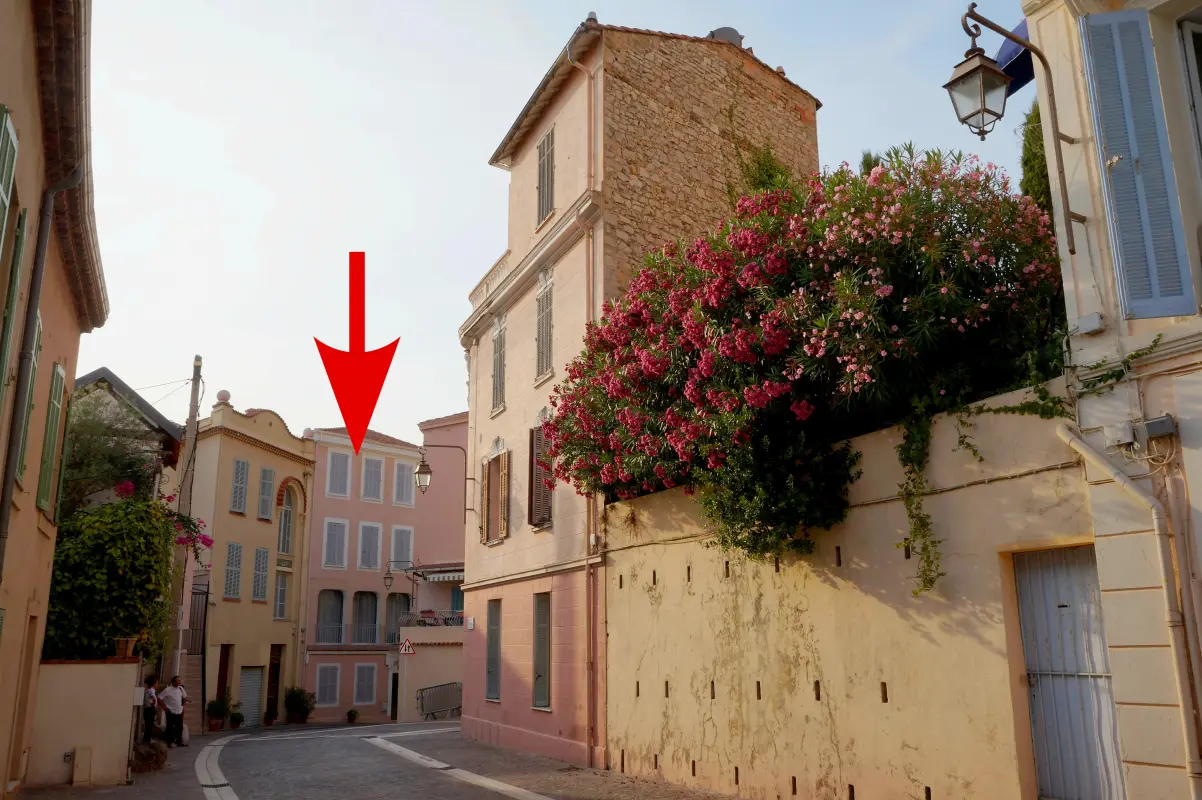
But before we answer that, let's look at a few more examples to understand how context alters our color perception.
Checker shadow illusion
Look at this checkerboard. What color are squares A and B? Square A appears darker in color than square B.
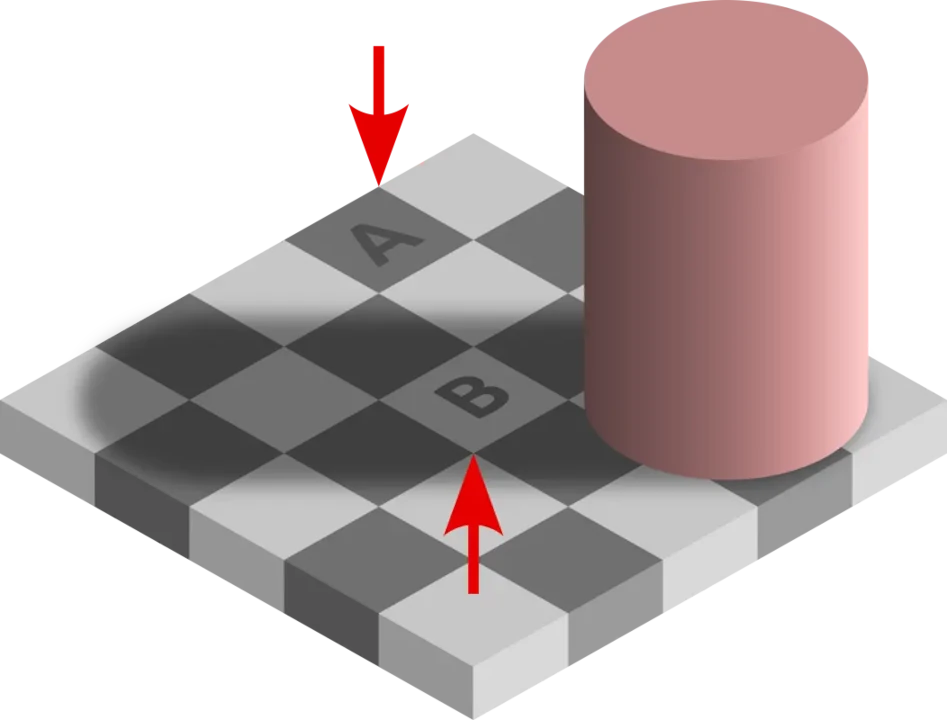
But in fact, for squares A and B, the pixels on the screen are the same color. This happens because our brains interpret the color and brightness of objects based on the surrounding context and lighting, causing us to perceive squares of the same color as different ones due to shadows and contrasts.
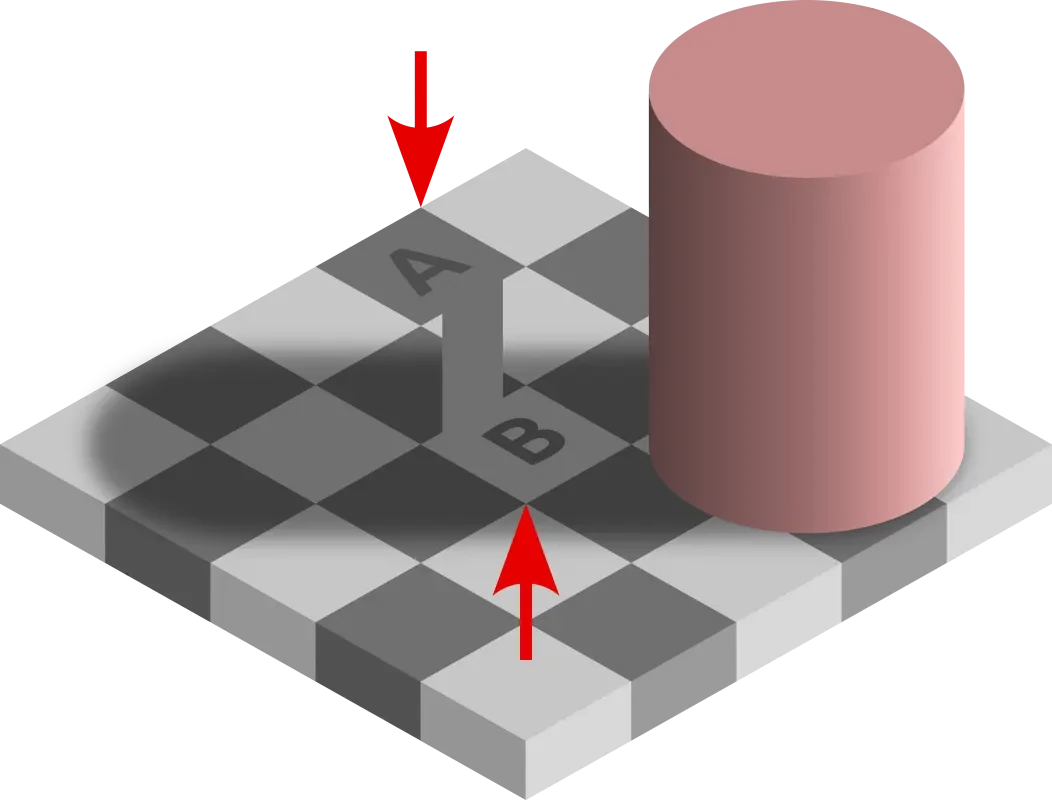
Cornsweet illusion
Now look at these faces of the cube. Face B appears darker than face A.
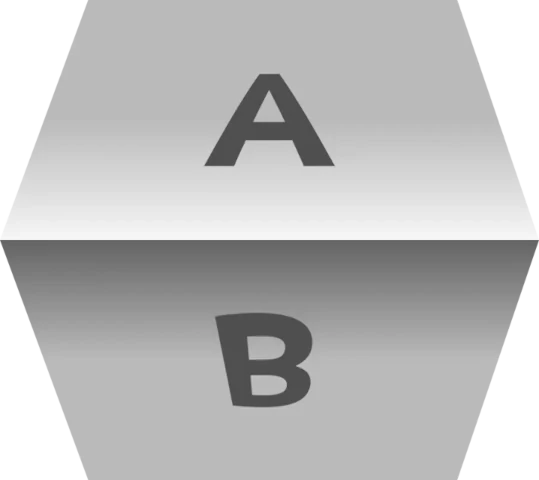
But in fact, both faces A and B have the same color. This is due to the subtle gradient near the edge and the sharp contrast at the border to trick the brain into perceiving the difference between light and shadow.
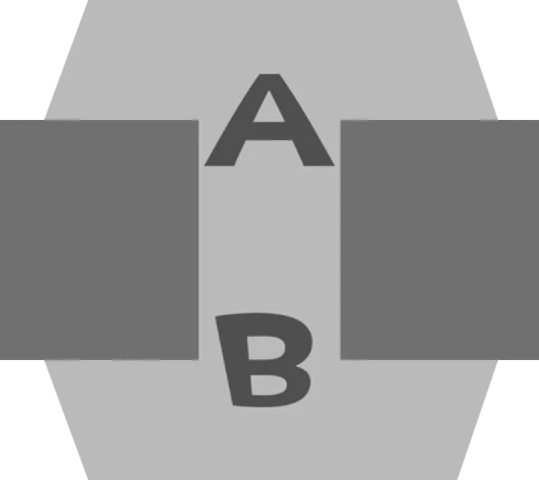
Koffka ring illusion
Now look at these half rings. Half ring B appears darker than half ring A.
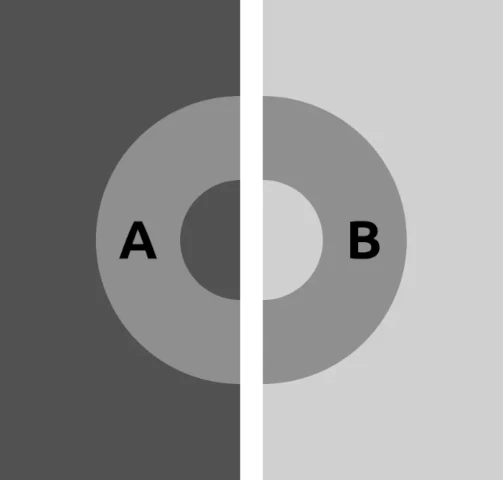
But if we connect the half rings into a single ring, we will see that the half rings are actually the same color. Again, this is due to the influence of surrounding context and perceived contrast.
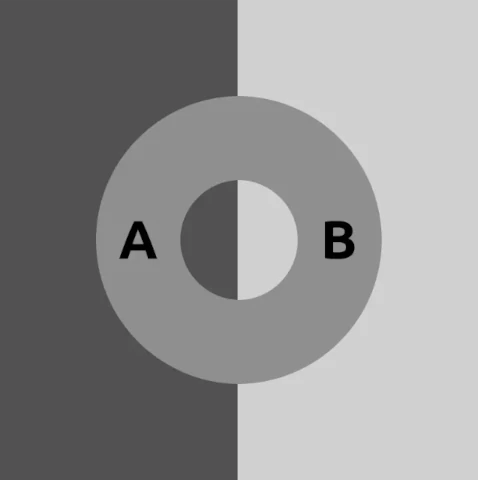
Rubik’s cube shade illusion
The same thing applies to color images. Look at this Rubik's cube. Piece A appears much darker than piece B.
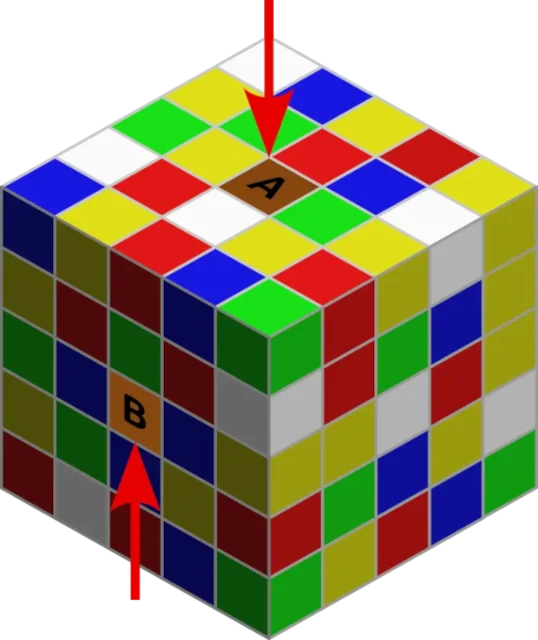
But again, they are the same color. Piece A is on the light side and is surrounded by lighter pieces, and piece B is on the dark side and is surrounded by darker pieces. The surrounding context and lighting make us perceive pieces of the same color differently.
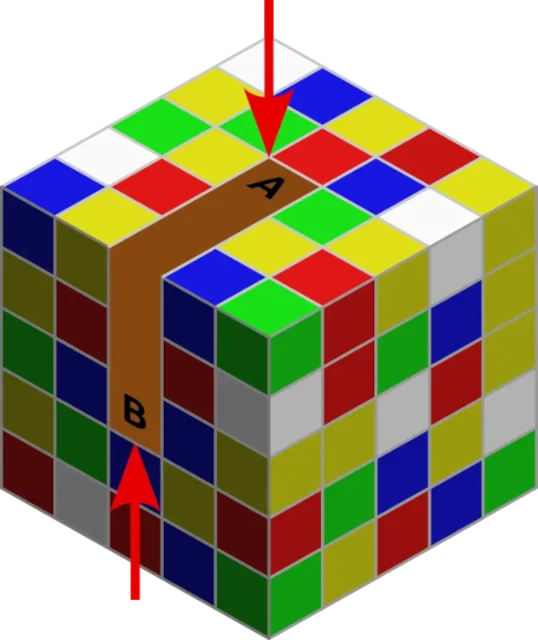
So what color is this building?
Let's go back to the light pink house. If we paint it light pink, as our perception tells us, the result will be different from the photo.
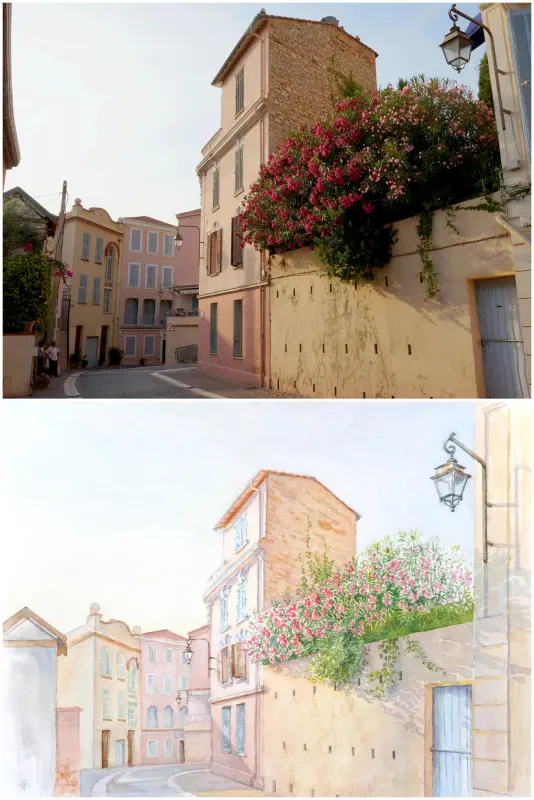
Let's use the Color Picker from ArtistAssistApp. We see that this color is actually brown with a mauve tint. If the surrounding colors are also mixed correctly, this brownish color will appear pinkish.
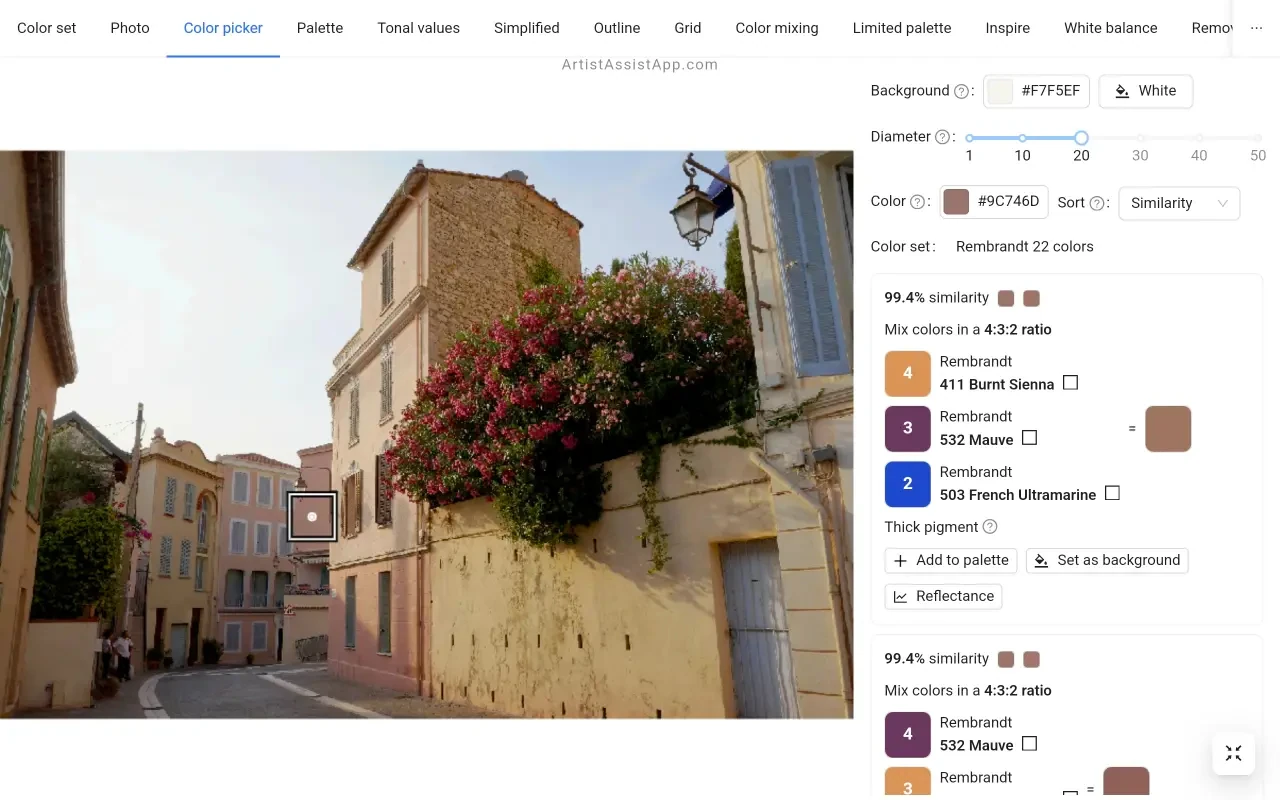
Look at the result. Much better this time.
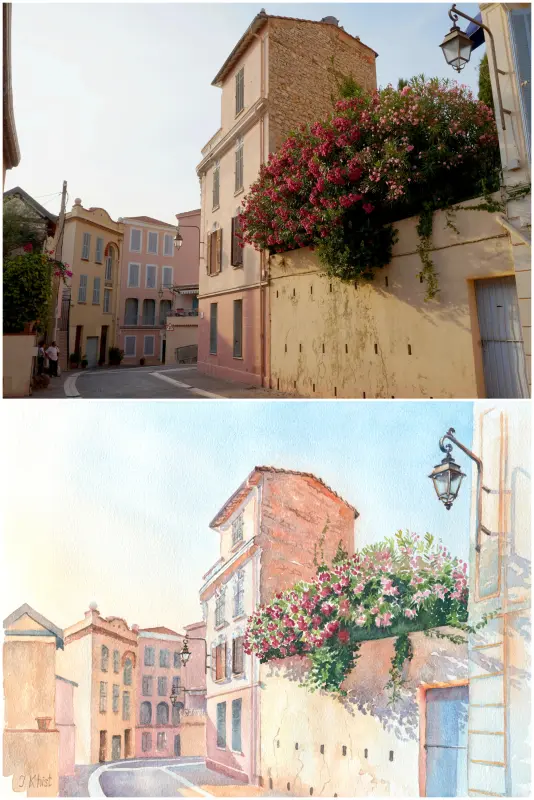
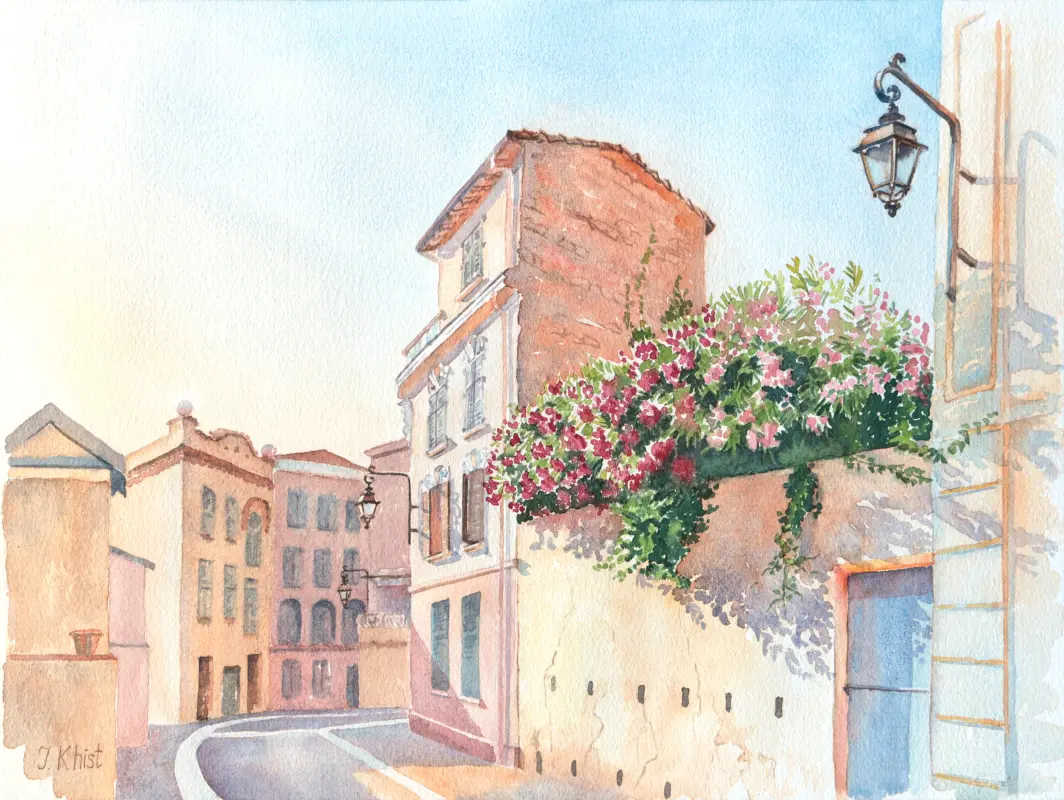
Painting by Irina Khist.
ArtistAssistApp Color Picker
You can specify which colors of certain brands you have on hand, and ArtistAssistApp will give you step-by-step instructions on how to mix any color from a photo with your colors.
Save color mixtures to the palette for easy access and name them to make it easier to identify where it belongs.
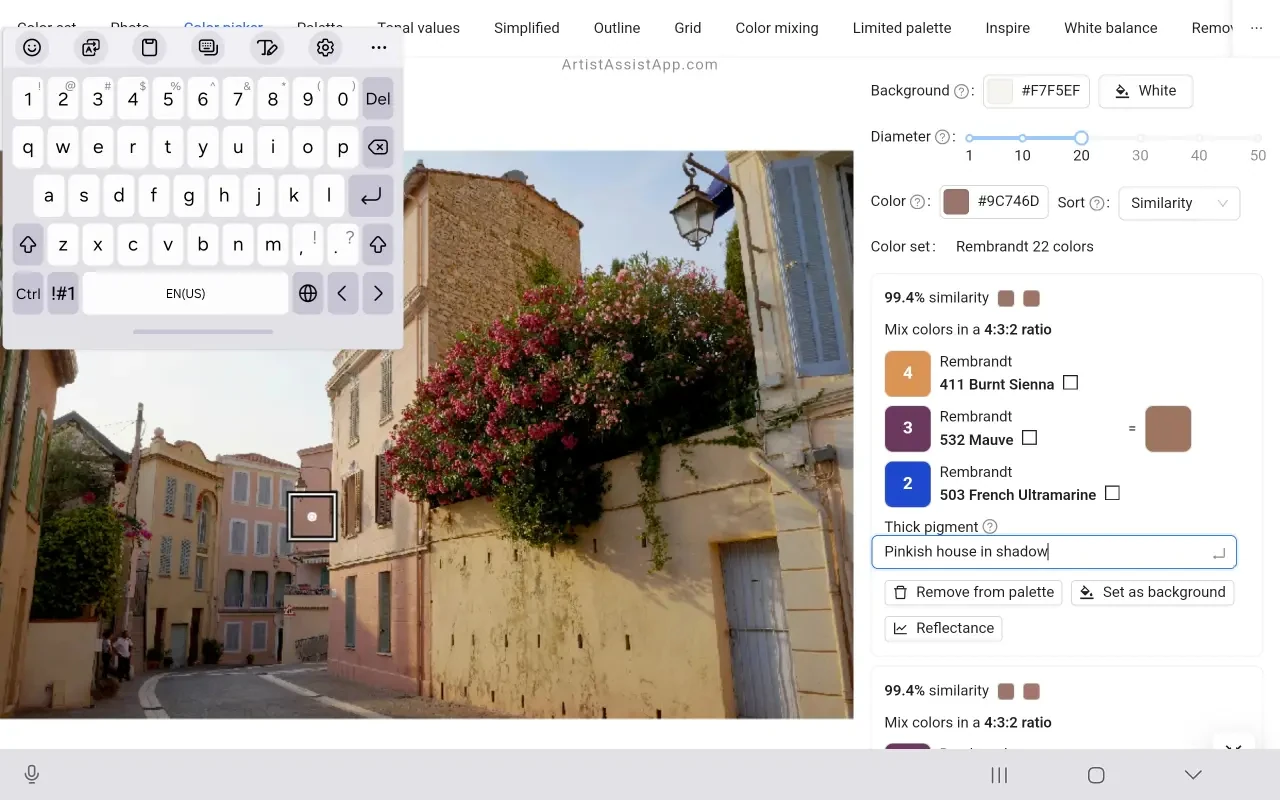
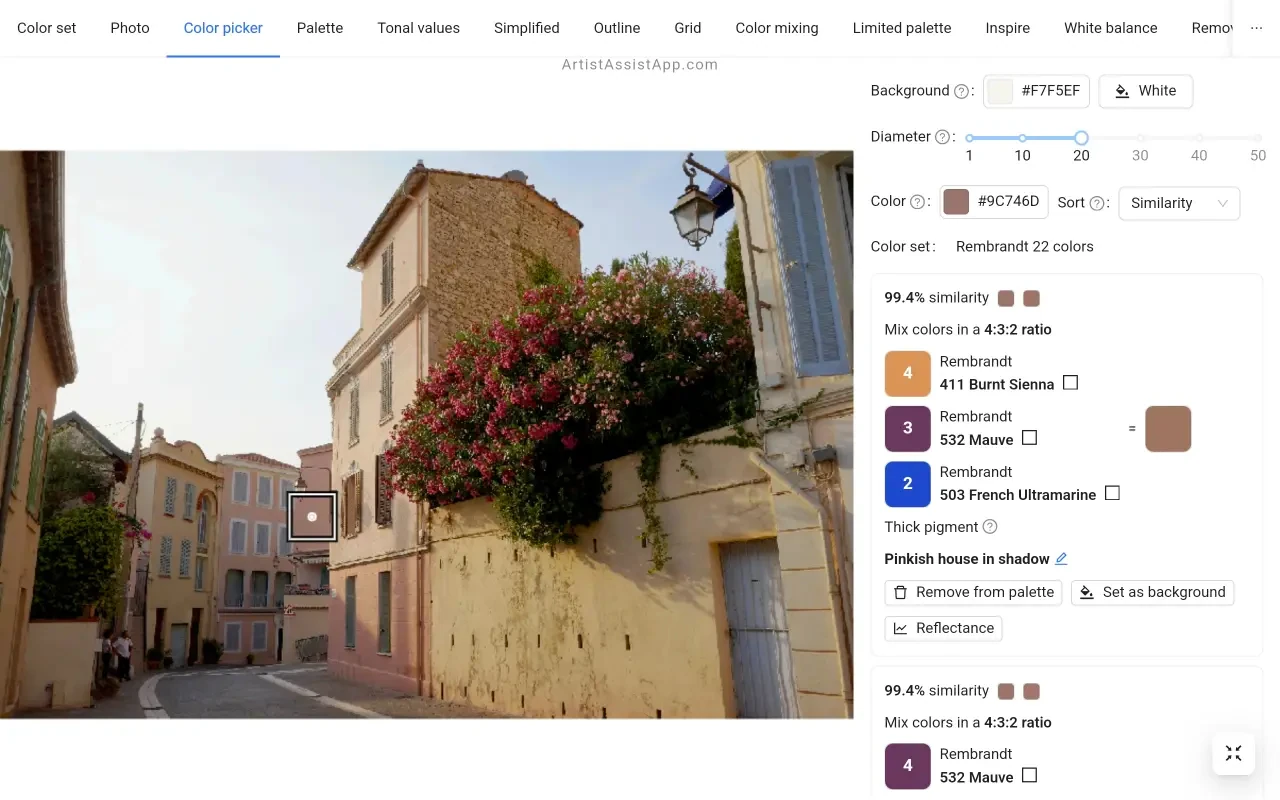
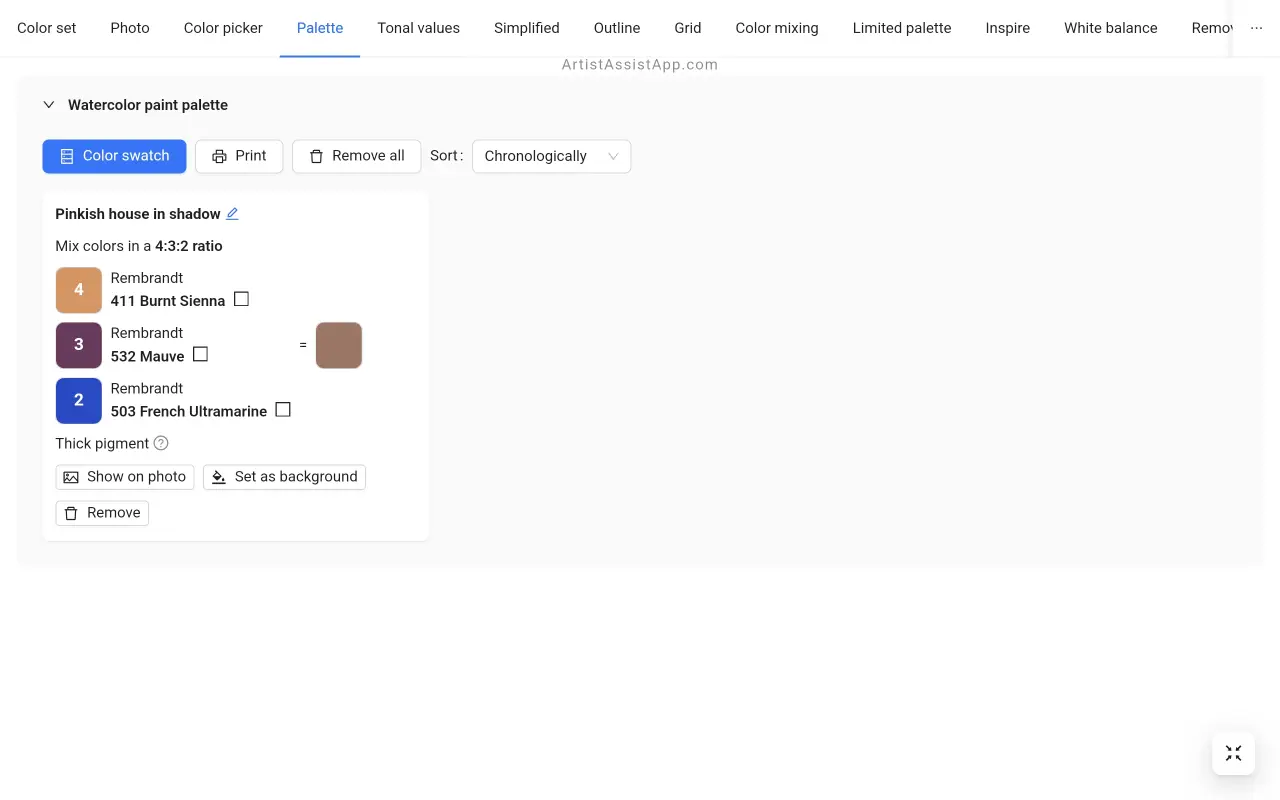
About ArtistAssistApp
ArtistAssistApp, also known as Artist Assist App, is a web app for artists to accurately mix any color from a photo, analyze tonal values, turn a photo into an outline, draw with the grid method, paint with a limited palette, simplify a photo, remove the background from an image, compare photos pairwise, and more.
Try it now for free at https://app.artistassistapp.com to improve your painting and drawing skills and create stunning artworks.
